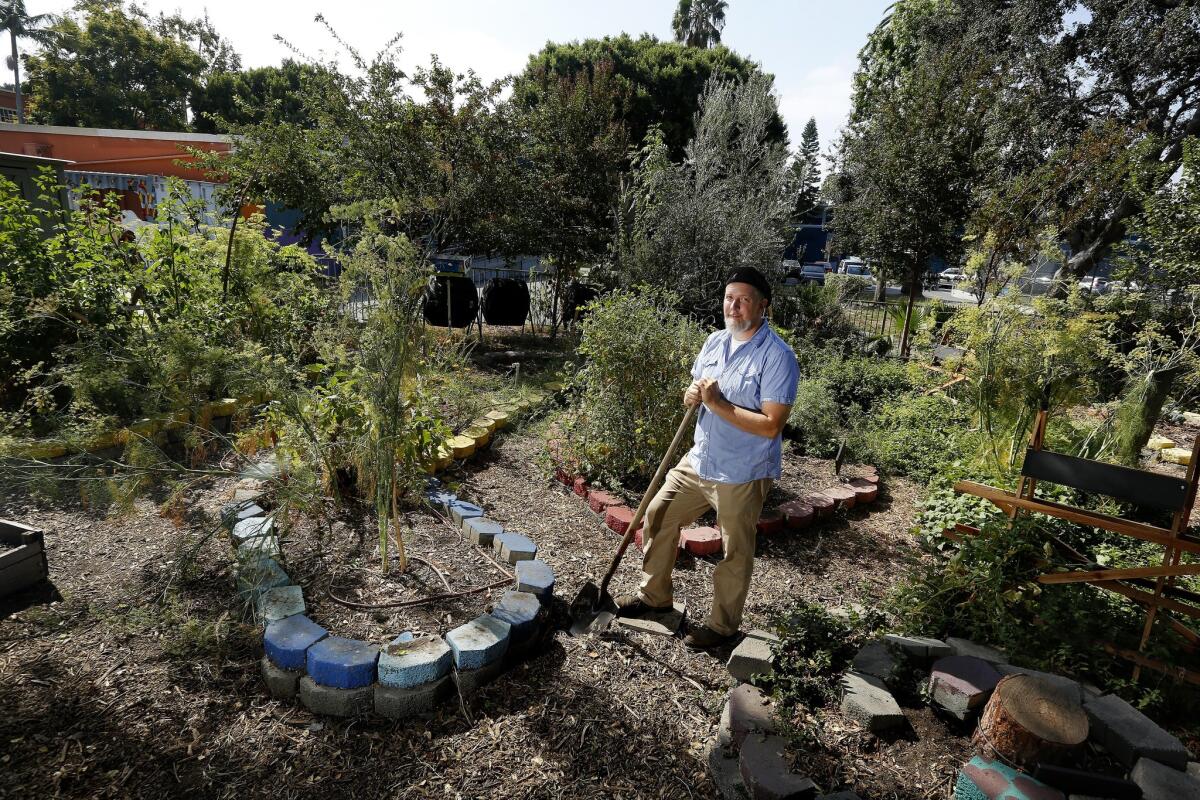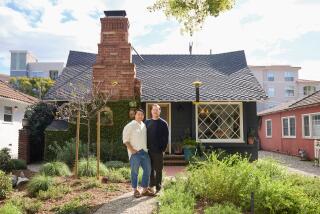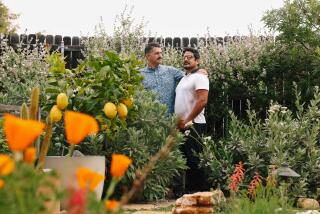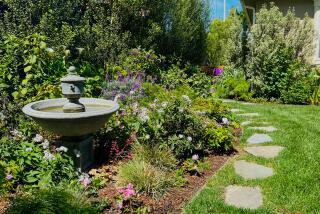What a school does when it’s ‘kind of running out of water’

David Egeler, a teacher in the environmental studies magnet at Thomas Starr King Middle School, stands in the school’s central garden on Aug. 31.
A gaggle of sixth-grade students grab overripe eggplants from a compost pile in the green edible garden, a focal point of Thomas Starr King Middle School. They make their way up a hill, passing more classrooms to a tree at the edge of campus, surrounded by what looks like a mound of hay.
It’s 101 degrees outside the Los Feliz school, and the hay is dry to the touch. Teacher David Egeler tells the kids to poke a finger into a small opening in the mound, and tell him what they feel.
There’s soil inside, and it’s wet.
That’s because they’re at the campus’ newest garden, called the hugelkultur garden. To make it, Egeler and his colleagues piled wood, watered it, then covered the wood with a layer of soil and another of hay. The wood can hold water when it rains, and releases it slowly into the soil as necessary, Egeler said.
Egeler and other teachers in the magnet school learned about hugelkultur gardens through a program with the Occidental Arts & Ecology Center.
The drought, and the possibility of an impending El Niño, are offering schools such as King the opportunity to expand their outdoor science lessons beyond observing how fruits and vegetable grow. With the hugelkultur garden, students and their teachers are learning to manage resources in California.
During periods of extended drought, the students or teachers need to water the hugelkultur garden once every few months, at most. And when it rains, this garden will help capture the water and hold it, preempting water waste.
“We don’t know how long this one [drought] will be,” Egeler said.
The garden is particularly useful this year as California anticipates a potential El Niño. An onslaught of rain could be good for California agriculture, but King Middle School has to plan for it with more than just a hugelkultur garden.
Parts of the school tend to flood whenever it rains for more than a day, Egeler said.
For one thing, the school was built over a creek, which Egeler said he didn’t know when the nonprofit Enrich LA built the garden. When it rains, the water still follows that creek’s path, right through the garden. The plants, many of which aren’t native to California, have been destroyed by gushing rainwater in the past, Egeler said.
The kids are also learning to deal with potential design flaws from Angelenos of the past, he said.
“We’ve covered up all these permeable environments,” Egeler said. “You just don’t need to cover everything with a hard surface.”
School officials soon plan to reconfigure the edible garden by replacing what’s in the creek’s pathway. There, they’ll place native California plants that can handle heavy rain once or twice a year, and drought the rest. They’ll surround the addition with the edible plants they still want and need for their science curriculum. But thanks to the revamping, the school won’t have to waste as much water on the edibles during the year, Egeler said. Those surrounding plants might even be hugelkulturs too, to trap more of the rainwater.
The efforts to save water can be seen all over the school. Some are subtle. For example, there are what look like forgotten mounds of dirt pushed up against two trees at the school, surrounded by pavement. Those are in the creek’s path too, and the dirt is built up in the form of a swale to help direct rainwater away from the concrete.
Back at the hugelkultur garden, the students are busy naming a spider they found, and feeding those yellow eggplants to a bunch of worms.
“We’re kind of running out of water,” said Emily Guardado, 11. “I like this.”
Reach Sonali Kohli on Twitter @sonali_kohli or by email at sonali.kohli@latimes.com
More to Read
Start your day right
Sign up for Essential California for news, features and recommendations from the L.A. Times and beyond in your inbox six days a week.
You may occasionally receive promotional content from the Los Angeles Times.







